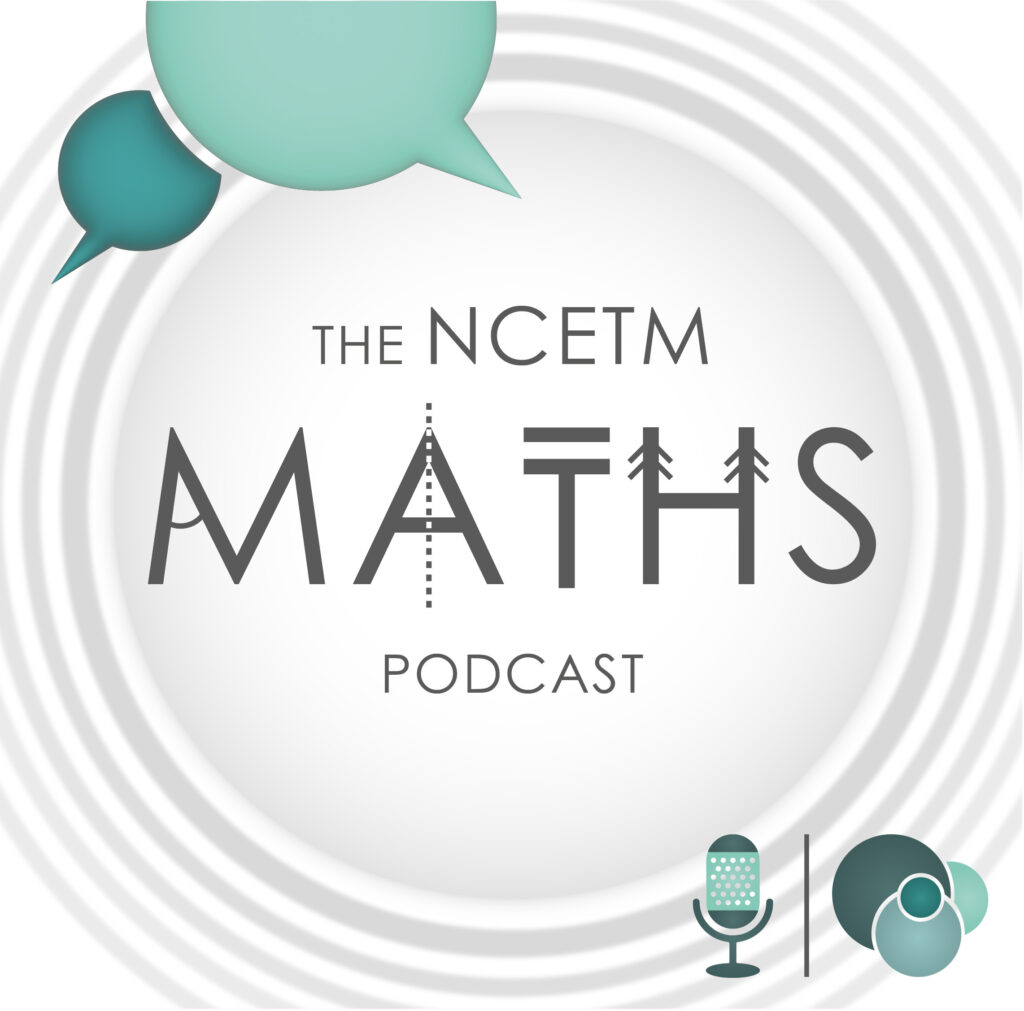In this series of posts, we’ll be featuring mathematical podcasts from all over the internet, by speaking to the creators of the podcast and asking them about what they do.
We spoke to Beth Goodliff from the National Centre for Excellence in the Teaching of Mathematics, about their in-house podcast aimed at maths teachers.
Podcast title: The NCETM Maths Podcast
Website: ncetm.org.uk/podcast
Links: Episodes on website, Podbean, Spotify, Apple podcasts, Google podcasts, Amazon Music
Average episode length: Around 25 minutes
Recommended episodes: Using algebra tiles at KS3 and Debbie Morgan discusses differentiation

What is your podcast about, and when/why did it start?
The podcast is about maths teaching, professional development for all teachers of maths, and maths in the wider world. It began in 2017, because we wanted to share the wealth of knowledge and expertise that maths teachers have, and we know not everyone wants to read lengthy features. Some episodes aim to give teachers ideas about particular classroom activities and approaches, and some are wider discussions about the role of maths in real life. We speak to a range of guests and explore maths teaching from Early Years to post-16 and beyond.
Who publishes your podcast? Tell us about yourself/your organisation.
The NCETM (National Centre for Excellence in the Teaching of Mathematics) was set up in 2006 to support teachers of maths in England with subject-specific professional development. We now also coordinate the Maths Hubs Programme, which serves all state-funded schools in England and delivers much of the CPD at a local level. All our professional development is completely free, and our website has a wealth of resources for teachers in all phases.
The podcast is hosted by me, and the two Comms Managers in the team, Julia Thomson and Rebecca Longworth. I’m a former English teacher (but with a love of maths!), and Julia and Rebecca both previously taught at primary.
Who is the intended audience for the podcast?
It’s primarily aimed at those who teach maths – including primary teachers, secondary maths teachers, school leaders, and non-specialists teaching maths.
What is a typical episode like?
A typical episode is about 25 minutes long, and usually involves a discussion between the host and anywhere between one and four guests. Usually our guests come along to share some expertise on, or tips for, the classroom, or tell us about a project they are doing that involves spreading the word about the power and wonder of maths. Episodes aren’t released to any particular schedule, but we usually publish one or two a month.
Why should people listen? Why is it different to other mathematical podcasts?
It’s a podcast that gives teachers of maths real, practical advice from those who are also teaching maths. It doesn’t talk down to teachers, but instead explores the reality of teaching maths and is designed to remind listeners why they love it! As well as classroom-focused episodes, it also explores real-world applications of maths, including in people’s careers.
Our guests range from primary school teachers and secondary heads of maths to Eugenia Cheng and Susan Okereke. We also speak to representatives from the exam boards to unpick each summer’s maths results. Each episode is ideal for a drive to or from school, or for a lunchbreak listen. We aim to have something for everyone.
What are some highlights of the podcast so far?
Particularly popular episodes have included Susan Okereke: speaker, podcaster and maths teacher, Why and how to use the ‘ping pong’ teaching style and Using number lines in secondary maths.
What exciting plans do you have for the future?
We currently have four episodes recorded ready to release in the new academic year. Of these, two topics we expect to be particularly popular are oracy in the maths classroom, and dealing with maths anxiety. We are also going to give the podcast its own Instagram account! Look out for an #NCETMWeekInFocus on Twitter and Facebook later in the year, where we will spend a week exploring all things NCETM podcast, and sharing it with as many listeners, new and old, as possible.